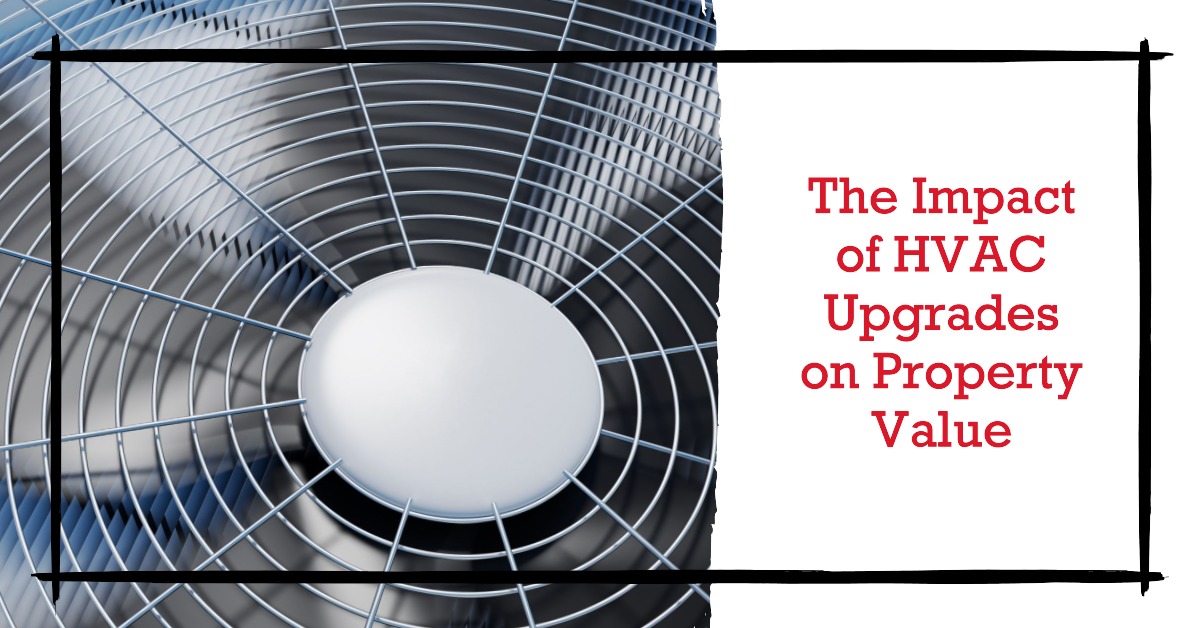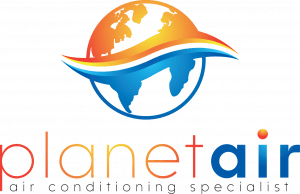
Heating, Ventilation and Air Conditioning (HVAC) systems are essential for the comfort of any property. Upgrading an HVAC system can result in improved energy efficiency, increased comfort levels and reduce the need for costly repairs. In addition to providing these benefits, HVAC upgrades can also have an impact on property value. This article will discuss the various factors that influence how much value is added to a property through HVAC upgrades, as well as strategies for maximizing return on investment. It will consider both the costs of upgrading an HVAC system and potential impacts on property value. By understanding how these two aspects interact with each other, homeowners can make educated decisions about their investment in their home’s comfort and long-term resale value.
Benefits of HVAC Upgrades
Upgrading of heating, ventilation, and cooling systems may provide a range of advantages that can positively contribute to the overall real estate valuations. Through energy efficiency upgrades, homeowners are able to reduce their energy consumption while also reducing their utility costs. Climate control mechanisms within an HVAC system enable occupants to easily adjust the temperature and humidity levels throughout the home according to their preferences. Improved air quality is another benefit, as upgraded systems often include air filtration or purification components designed for eliminating allergens from indoor air. Additionally, tax credits are often available for those who install certain types of HVAC equipment in their homes. Finally, noise reduction is an advantage associated with updated systems since they tend to operate quietly compared to older versions of HVAC technology.
In some cases, these benefits can be enough to increase a property’s value significantly; however, it is important to factor in the costs when considering such upgrades.
Cost of HVAC Upgrades
The cost of modernizing a building’s heating, ventilation, and air conditioning system can be considerable, yet the potential rewards may be worth the investment. Depending on the type of HVAC system and its age, it can involve replacing or repairing ductwork, adding insulation, upgrading to energy-efficient appliances and materials, as well as other tasks associated with installation. Here are some elements to consider when assessing the cost of an HVAC upgrade:
Energy Efficiency: Replacing an old unit with a new one that is rated for greater energy efficiency can result in lower utility bills over time. Additionally, installing insulation around ductwork or other areas of heat loss will further help reduce energy costs.
Noise Reduction: Upgrading components that produce noise such as fans or motors may require additional expense but can also enhance occupant comfort levels significantly.
Installation Costs: Installing a new HVAC system requires professional contractors who specialize in this type of work; their fees should be factored into overall budget calculations for the project.
Climate Control & Air Quality: Maintaining climate control at comfortable levels while ensuring optimal air quality often requires additional investments in newer technologies such as programmable thermostats and/or air filtration systems.
In addition to these considerations related to cost, it is important to factor in any local incentives or tax credits that may be available when planning an HVAC upgrade. Doing so can potentially reduce out-of-pocket expenses for many projects while increasing return on investment for property owners over time. Such research is essential before making any decisions about upgrades so that maximum benefit from them can be realized without breaking the bank.
Factors Affecting Property Value
Factors such as energy efficiency, noise reduction, climate control, and air quality all contribute to the overall value of a building and should be taken into account when assessing potential investments. The location of a property is also an important factor to consider because it can influence zoning laws, access to public transportation, local schools and amenities. Energy efficiency upgrades can help reduce monthly utility bills and appeal to buyers who seek these features in their homes. Furthermore, market trends are constantly changing and must be monitored by appraisers who assess the value of a property prior to its sale. Homeowners should research current market trends during the appraisal process in order to maximize return on investment from any HVAC system upgrades or renovations. Additionally, understanding zoning regulations can prevent costly delays or legal issues that might arise if they are not followed correctly.
Making sure that any HVAC improvements comply with state regulations is essential for homeowners looking to increase property value quickly and effectively. Property owners should consult an experienced contractor before making any major changes in order to avoid potential pitfalls associated with energy efficient systems or other upgrades that do not meet requirements for occupancy permits or historical preservation standards. By taking into consideration all factors affecting property value before making any investments in HVAC systems upgrades or renovations, homeowners will have greater assurance that their improvements will provide adequate returns on investment over time. Taking the necessary steps now will enable them to make informed decisions regarding future projects while ensuring a successful outcome for their efforts.
Maximizing Return on Investment
By taking into account market trends, zoning regulations, and energy efficiency upgrades when considering HVAC system improvements, property owners can maximize their return on investment while ensuring a successful outcome for their efforts. Understanding the financial plan benefits available for HVAC upgrades, such as tax incentives, rebates, or financing options, can further enhance the return on investment by reducing upfront costs and spreading out payments over time. For example, a recent survey of homeowners in the area revealed that those who invested in energy-efficient upgrades to their heating and cooling systems saved an average of 25% on their monthly utility bills. Such savings can be considerable over time if the system is properly maintained.
The installation process for HVAC systems also needs to be considered before investing; this includes understanding the local zoning regulations as well as any permits needed before beginning work. Additionally, it is important to consider indoor air quality initiatives such as air filtration systems and ventilation improvements in order to ensure healthy living conditions. Furthermore, maintenance costs should not be overlooked since they will add up over time.
Tax incentives are another factor that can help drive down costs associated with upgrading or installing new HVAC systems; these incentives vary by region so it is best to research them thoroughly before making any final decisions. Moreover, energy efficiency ratings should be taken into account when choosing products since efficiency translates directly into lower operational costs. Finally, working with experienced professionals who understand all aspects of the project will ensure quality results that will last for years to come and provide maximum return on investment for property owners.
Conclusion
Upgrading a HVAC system can be a costly investment, but the returns can also be significant. In addition to improving comfort levels and energy efficiency in the home, upgrades may also boost property value. To maximize return on investment, homeowners should consider factors such as location, age of the home, condition of competing properties and current market conditions. Metaphorically speaking, one can think of an HVAC upgrade as planting a tree; it may not provide immediate benefits but over time can bear fruit that will continue to grow in value for years to come.
